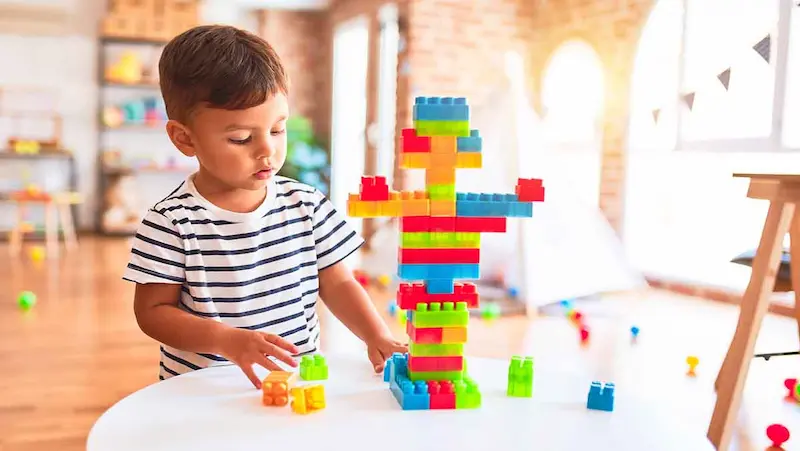The early experiences in a child’s life significantly influence their future, with preschool providing a crucial foundation for education. This blog highlights the importance of preschool in child development, discussing its cognitive, social, and creative benefits, and emphasizing its role in fostering lifelong learning and success.
Nurturing Young Minds Cognitive and Social Benefits of Preschool
Preschool is more than just a place for children to spend time while their parents work; it is a crucial step in nurturing young minds. During these formative years, children experience rapid brain development, absorbing an immense amount of information. Preschool programs are designed to enhance cognitive skills through activities that promote language development, problem-solving, and critical thinking.
Children are encouraged to ask questions, explore their environment, and engage in hands-on learning experiences. These activities stimulate their curiosity and help develop essential cognitive abilities. For instance, storytelling sessions and interactive games promote language acquisition and comprehension skills. Additionally, structured play encourages problem-solving and decision-making, laying the groundwork for academic success.
Socialization is another vital aspect of preschool education. Through interactions with peers and teachers, children learn to communicate effectively, share, and cooperate with others. They develop empathy, patience, and the ability to express their thoughts and emotions. These social skills are crucial for building relationships and navigating the complexities of the world.
Laying the Groundwork Preschool as Preparation for Formal Education
Preschool serves as a bridge between home and formal education, preparing children for the academic and social challenges of elementary school. The transition from a familiar home environment to a structured school setting can be daunting for young children. However, preschool provides a supportive space where they can gradually adjust to new routines and expectations.
In preschool, children learn essential skills that form the foundation of their academic journeys. Childcare programs like those available in Salt Lake City introduce basic concepts such as numbers, letters, shapes, and colors through playful activities and engaging lessons. Through repetition and reinforcement, children gain confidence in their abilities and develop a love for learning.
Beyond academics, preschool also prepares children for the social dynamics of a classroom. They learn to follow instructions, take turns, and work collaboratively with others. These skills are essential for creating a positive learning environment and ensuring a smooth transition to kindergarten and beyond.
Sparking Imagination The Role of Preschool in Fostering Creativity and Critical Thinking
Preschool is a place where creativity and imagination flourish. The curriculum is designed to encourage children to think outside the box, explore new ideas, and express themselves freely. Art projects, music, and imaginative play are integral components of preschool education, providing children with opportunities to develop their creativity and problem-solving skills.
Creative activities allow children to express their thoughts and emotions in a safe and supportive environment. They learn to experiment with different materials, colors, and textures, fostering their artistic abilities. Through imaginative play, children explore different roles and scenarios, developing their communication and social skills.
Critical thinking is another essential skill nurtured in preschool. Children are encouraged to ask questions, make predictions, and find solutions to problems. Whether it’s building a tower with blocks or solving a puzzle, these activities stimulate their logical reasoning and decision-making abilities. By fostering creativity and critical thinking, preschool lays the foundation for lifelong learning and innovation.
Building a Solid Foundation The Influence of Quality Early Childhood Education on Later Success
Research consistently shows that a quality preschool education has a profound impact on a child’s later success in life. Children who attend high-quality preschool programs are more likely to excel academically, socially, and emotionally. They demonstrate higher levels of self-confidence, resilience, and a love for learning.
Studies have found that children who receive a strong early childhood education are more likely to graduate from high school, pursue higher education, and secure stable employment. They are also less likely to engage in risky behaviors or encounter legal issues. The skills and values instilled during preschool years become the building blocks for future achievements and contribute to a fulfilling life.
Making the Right Choice Practical Tips for Choosing the Right Preschool
Choosing the right preschool is a significant decision for parents and educators. It is essential to find a program that aligns with the child’s needs, interests, and family values. Here are some practical tips to guide your selection process:
- Research and Visit: Start by researching different preschools in your area. Visit the facilities, observe the classrooms, and talk to the teachers and staff. Pay attention to the learning environment, teaching methods, and overall atmosphere.
- Curriculum and Philosophy: Inquire about the curriculum and teaching philosophy of the preschool. Ensure that it aligns with your child’s learning style and your family’s values. Look for a balance between structured learning and play-based activities.
- Teacher Qualifications: Ask about the qualifications and experience of the teachers. A well-trained and passionate teaching staff is essential for providing a nurturing and stimulating learning environment.
- Class Size and Ratios: Consider the class size and student-to-teacher ratios. Smaller class sizes allow for more individualized attention and better opportunities for social interaction.
- Parent Involvement: Find out how parents are involved in the preschool community. Look for programs that encourage open communication and collaboration between teachers and parents.
- Safety and Cleanliness: Ensure that the preschool maintains high standards of safety and cleanliness. Check for proper security measures, clean facilities, and a healthy environment.
By carefully considering these factors, parents and educators can make an informed decision and choose a preschool that provides the best foundation for a child’s development.
Conclusion
Now that we have explored the various aspects of preschool education, it is evident that its role goes far beyond preparing children for kindergarten. Preschool plays a crucial role in fostering creativity, critical thinking, and social skills while laying the foundation for future success.
